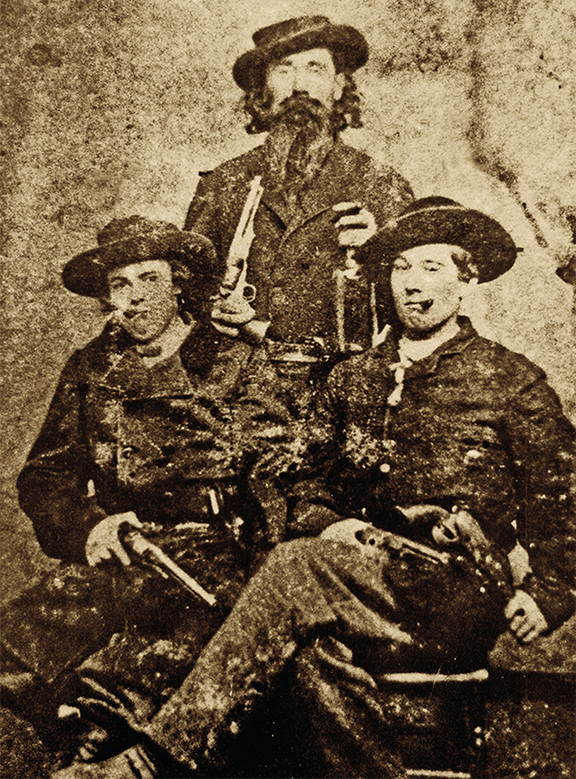May 19, 2023
One of the hardest things for me to get my head around is how a typical Missouri farm kid went from being a good boy to being a stone cold killer.
Daily Whip Out: "Jesse Before The Storm"
So far, the best explanation I have found came right here on the pages of my own magazine.
In the, March 2020 cover story, by Pulitzer Prize winning author, T.J. Stiles, he spells out "The Birth of A Killer." For starters, Jesse's mother was a fierce secessionist with a lacerating tongue, so her boys, Frank and Jesse, got some major rebel-style encouragement at home. After Frank and his savage set of comrades—"Fletch" Taylor, and "Little Archie" Clement—returned to Clay County in April of 1864, they all had been blistered by butchery at Lawrence and elsewhere. When they landed at the James farm, young Jesse had violence coaches on every side. Taylor and Clement took over as Jesse's mentors. As T.J. puts it, "He now belonged to a group that believed a man must murder for respect."
An 1863 photograph of three Missouri partisan rangers, l.-r., Archie Clement, Dave Pool and Bill Hendricks. Jesse became a great admirer of the vicious bushwhacker, "Little Archie."
"They were guerrillas. They were not engaged in a war that a colonel of the Army of the Potomac or a general of the Army of Northern Virginia could recognize. They had no lines, no objectives, no strategy, no command structure. Theirs was a purely tactical war, a war to inflict pain, to punish, to kill and destroy. Every barn and brook was a battlefield; every civilian, either an ally or a target. By stepping into that brooding, deathlike camp, Jesse James entered a race to find and kill as many enemies as he could."
—T.J. Stiles, "Jesse James: Last Rebel of The Civil War"
And, as Frank James himself put it, “If you ever want to pick a company to do desperate work, select young men from 17 to 21 years old. …Take our company and there has never been a more reckless lot of men. Only one or two were over 25. Most of them were under 21. Scarcely a dozen boasted a mustache.”
So, there's your turn. And, from there on, there were those who made excuses for Jesse, especially this guy:
"We called him an outlaw, and he was, but fate made him so."
—John Newman Edwards
Daily Whip Out: "Jesse The Blue-Eyed Devil"
The truth is other boys had similar circumstances, lived through the same era and did not rob banks and kill innocent people. That is the hard reality of the Jesse James story. Can his memory be redeemed? Not really. And, for the record, that is part of his legendary charm. The bad boy who defies gravity. Don't we all wish on some level to have that impunity. That is the charm of the story. That is why we still make the pilgrimage to his farm and his grave.
Of course, he became other things and I'll get to those as the book is built, one chapter at a time.
Does he deserve a pass? No. Does he deserve a halo? Hardly. Does he matter? Yes, and on some level that doesn't make sense logically but nobody has said it better than this:
"The history of the race, and each individual's experience, are thick with evidence that the truth is not hard to kill and that a lie well told is immortal."
—Mark Twain





No comments:
Post a Comment
Post your comments